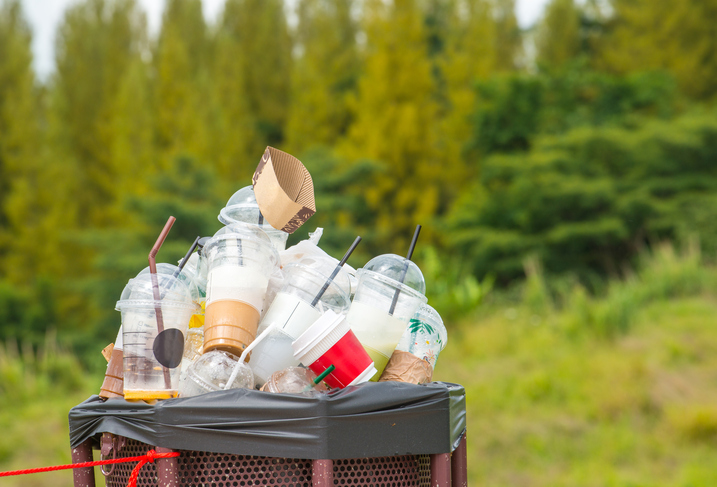The biggest energy wasting substance on the planet is plastic. That’s right, plastic. For all the good that comes from plastic substances, it has more downsides than upsides.
The worst part about plastic is that it is made from petroleum. Gas, oil, and other fossil fuels are also made from petroleum, so every new piece of plastic further cuts into petroleum reserves.
On the upside of this equation is the fact that plastic is 100 percent recyclable. If everyone recycled all of their plastic goods, petroleum wouldn’t be needed to make new plastic. The unfortunate problem is that less than 20 percent of all plastics are recycled. The rest of it is thrown away and sent to landfills, which is a completely different problem all its own.
Non-Biodegradable
Plastic in landfills is not easily biodegradable. In fact, as the plastic begins to deteriorate, the chemicals used to make plastic leach out into the soil. As this happens, the soil around a landfill becomes akin to toxic waste, which is why no one wants to live near or around a landfill.
Plastic bottles and plastic grocery bags are the two main sources of plastic use. Once again, both the bags and the bottles are easily recyclable, but most of the time it is just a lot easier to throw them away in the regular trash than to separate them into individual containers. Consequently, the more plastic gets thrown away, the more energy is wasted to make more plastic.
Now, nobody can knock plastic as a useful substance. Plastic that has been used in the medical field has saved countless lives. Plastic is cheap and easy to mold, making it an incredibly versatile material. But plastic seems to be taken for granted, as though it is an infinite resource, yet that is the exact opposite of what it is.
Everyone can do their part to stop this waste of energy and raw materials.
Alternatives to Using Plastic
Here are two simple things that anyone can do, which is less expensive for the bank account, saves energy, saves petroleum products, and makes you feel good about doing it. Firstly, get a reusable grocery bag. There are many types out there, from canvas to nylon, and even heavy-duty plastic types that can be used for years. Using (and reusing) these is far better than getting new plastic bags every time you go to the store. In most cases, the reusable bags can be washed and dried with regular laundry, and they will be clean and good to go for the next shopping trip.
Another way to end plastic waste is to stop drinking bottled water and purchase an inexpensive faucet filter. Numerous studies have shown filtered tap water is as good as bottled water. Fill up your own bottles with filtered water, put them in the fridge to cool them down, and take them with you the next day. This is a huge money saver, as the cost of a water filter will pay for itself within a week or two, and it probably won’t need to be changed for months. Reusable plastic or aluminum bottles are available everywhere for about the same price as one 16-ounce bottle of “designer water.”
Stop wasting energy the plastic way. There are easy, money-saving alternatives to the plastic lifestyle, and they all begin with you.

